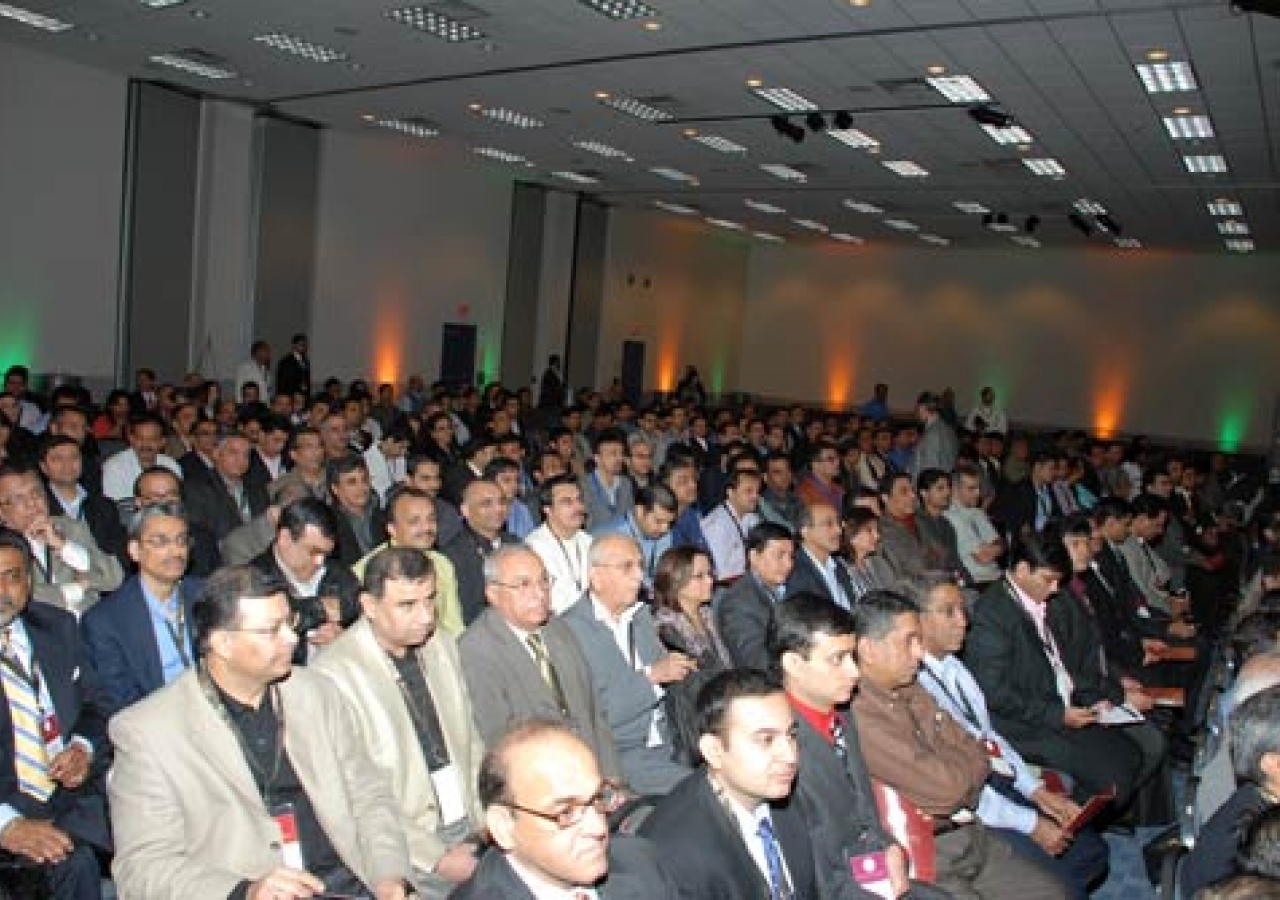“It's great to be here with people who are in the same boat as me,” said Gas and Convenience store owner Aazim Vistani. “I think that now is a good time for me to learn a new trade.”
The conference, an initiative of the Aga Khan Economic Planning Board, encouraged participants like Vistani to engage one another in an open dialogue about navigating the current economic climate, creating a network of new ideas and establishing a platform for the regional business community to share in common endeavours.
Featuring long-term, pragmatic and innovative options, session topics included forming alliances, e-commerce, emerging green businesses, hospitality, senior living, and real estate opportunities. Seminars on higher education underscored the benefits of advanced degrees and skills upgrade, which become particularly important in current economic conditions. Sessions on real estate acquisitions were widely attended by small business owners in the convenience store and hotel industry, who had the opportunity to hear from experienced brokers, landlords, and tenants on effective strategies in the current economic downturn and also using this time for exploring promising and successful prospects in the future.
With more than 700 participants, the conference attracted a significant number of women, both as attendees and panel speakers. Ambreen Charania, a young professional in her early twenties, found herself with the desire to explore new business creation opportunities, after taking the year off from her career to volunteer on Golden Jubilee activities.
“I'm really interested in attending the Online Business session,” said Charania. “My friends and I are thinking about launching our own products and I'd like to see how it's all done.” The session featured a panel of women discussing steps to create and run an online business from home. The panellists presented a simplified process designed to empower attendees to initiate their own on-line ventures.
Building on the outcomes of the Ismaili Economic Forum (IEF) held in Dubai last year, the RIBC also encouraged attendees to network with like-minded individuals to build sustainable, mutually beneficial alliances. A panel of distinguished businessmen and professionals, many of whom attended the IEF, shared their experiences, challenges, and perceptions on the formation of strategic alliances. The discussion highlighted how business and institutional alliances can provide a wide range of cost effective solutions when resources are pooled to serve common interests.
The information and enthusiasm at the RIBC provided confidence and reassurance within the Jamat, who, along with much of the world, must navigate a fragile global economy. In addition to providing new knowledge and insight on an array of innovative business and professional options, the conference reinforced the best way to endure the economic recession: together.








